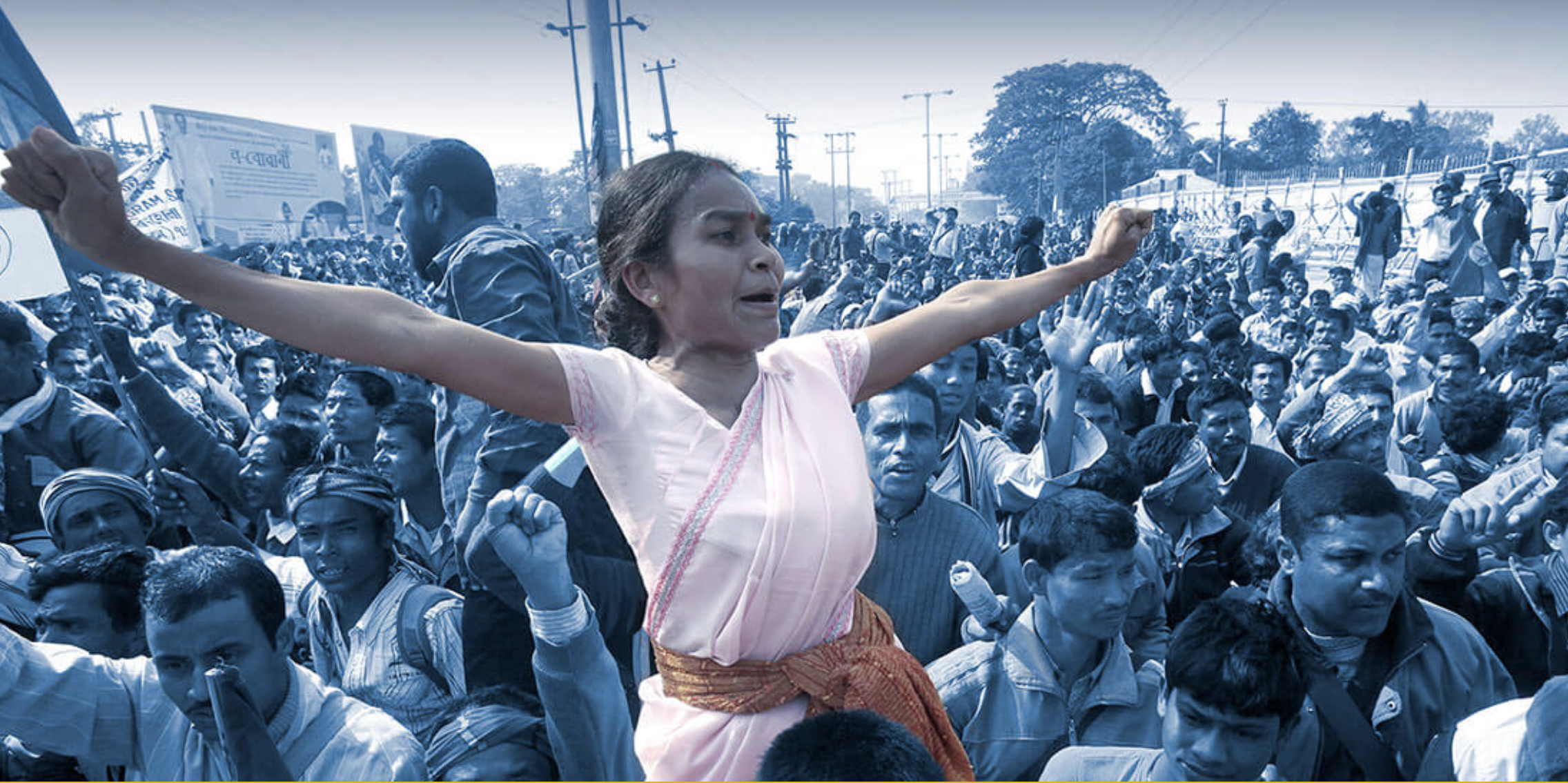Born from the vision of Chief Dr. Robert Joseph, Gwawaenuk Elder, Reconciliation Canada is leading the way in engaging Canadians in dialogue and transformative experiences that revitalize the relationships among Indigenous peoples and all Canadians.
Read More“Based on a viral article, 21 Things You May Not Know About the Indian Act is the essential guide to understanding the legal document and its repercussions on generations of Indigenous Peoples, written by a leading cultural sensitivity trainer, Bob Joseph.
Read MoreICNC - International Centre on Non-Violent Conflict - focuses on how ordinary people wage nonviolent conflict to win rights, freedom and justice. Here they offer an understanding of civil resistance, something currently being used in the anti-racism movement.
Read MoreICNC - International Centre on Non-Violent Conflict - focuses on how ordinary people wage nonviolent conflict to win rights, freedom and justice. Here they explain the importance of understanding the pillars of support within a society. Jesus understood them well. So should we.
Read MoreICNC provides information and educational opportunities about nonviolent civil resistance to activists and organizers around the world. Their view is that nonviolent struggle is a social science that can be studied and understood, and that practitioners increase their chances of success by learning from each other as well as from cutting edge academic scholarship on this topic.
Read MoreAmid Chauvin trial and more police killings, calls for ‘peaceful’ protests sound obnoxious. But as Martin Luther King Jr. preached, we must reject peace that prioritizes calm over justice — and work toward building a positive peace instead. Maria J. Stephan explores the options.
Read MoreBayo Akomolafe, is the chief curator of The Emergence Network, a research inquirey in the otherwise. It asks the questions: What if the way we respond to the crisis is part of the crisis. Here is his poetic offering: In the morning, you won’t find me here, A Meditation on Blackness.
Read MoreIn the age of the Anthropocene - the time humans have adversely affected the earth - and entrenched politics of whiteness, Bayo Akomolafe brings us face-to-face with our own unresolved ancestry, as it becomes more and more apparent that we are completely entwined with each other and the natural world.
Read MoreSlavery existed across British colonies, but often white Canadians, both in and outside the church, talk about enslavement by fixating on the Underground Railroad. Alydia Smith through her own experience in church culture, addresses this misconcpetion.
Read MoreRev. Teresa 'Terri' Hord Owens, general minister and president of the Christian Church (Disciples of Christ), offers a sermon on becoming the church that Jesus has called us to be - fully committed to anti-racism. The Diciples of Christ are in full communion with The United Church of Canada.
Read MoreThis visual essay features tintype photographs of the remaining speakers of endangered languages in North America, highlighting the critical state of Indigenous language loss and celebrating the Native speakers whose voices embody resilience and revitalization.
Read MoreKnown as the “Moses of her people,” Harriet Tubman was enslaved, escaped, and helped others gain their freedom as a “conductor" of the Underground Railroad. Her courage, ingenuity, and tenacity freed hundreds of slaves.
Read MoreAnish Bensdira writes about her experience growing up as a person of colour in a predominately white culture. “Years of living in a small town nearly ‘white-washed’ me,” she writes. “Then BLM came along. Getting involved with activism made me realize who I am.”
Read MoreCorinne Shutack is Working towards a world where pain and suffering isn’t caused by a fellow human. Here she offers 103 very specific things that white people can do for racial justice. Form a group and start working through the list. As Corinne says, “Our work to fix what we broke and left broken. The work isn’t done until Black folks tell us it’s done.”
Read MoreLayla F. Saad wrote Me and White Supremacy to encourage people who hold white privilege to examine their (often unconscious) racist thoughts and behaviours through a unique, twenty-eight-day reflection process complete with journaling prompts. This guided journal, which is to be used in tandem with the book, is the perfect place to continue your antiracism journey.
Read MoreOn The Bible for Normal People, Austin Channing Brown shares about her experience growing up in various churches and what we can learn from black churches - especially when it comes to preaching the Bible. Austin Channing Brown is a media producer, author, and speaker providing inspired leadership on racial justice in America.
Read MoreAre you interested in the intersection of race and work? Listen to this interview between Jeff Shinabarger and Austin Channing Brown for new insights on what it looks like to pursue racial justice in our work for social good. It comes to us from ‘Plywood Presents’.
Read MoreAustin Channing Brown writes that she is “not interested in love that is aloof, in a love that qualifies the statement, “Black lives matter,” because it is unconvinced this is true. I am not interested in a love that refuses to see systems and structures of injustice, preferring to ask itself only about personal intentions. I need a love that is troubled by injustice.”
Read MoreIn this never-before-released interview, the late civil rights leader and congressman John Lewis talks systemic racism, permanent warfare, extreme poverty and nonviolence as a way of life with Rev. John Dear, a life long, committed pacifist. Both men are devoted Christians.
Read MoreI’m Still Here, is an illuminating look at how white, middle-class, Evangelicalism has participated in an era of rising racial hostility, inviting the reader to confront apathy, recognize God's ongoing work in the world, and discover how blackness--if we let it--can save us all. It is a powerful account of how and why our actions so often fall short of our words.
Read More



















